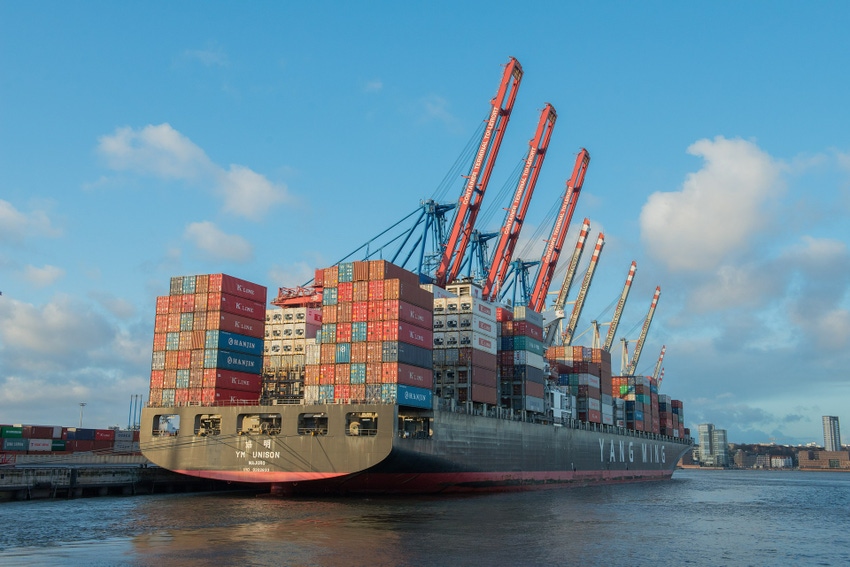Ag exports hurt by earliest return date changes
Nearly 80% of survey respondents report incurring extra costs on at least 5% of shipments.
October 20, 2020

A newly released research report from the Agriculture Transportation Coalition (AgTC) and TradeLanes, an advanced technology company that streamlines global commodity trade, shows that ocean carriers’ uncommunicated changes to the earliest return date (ERD) — the earliest date a loaded export container can be delivered to the carrier — are wreaking havoc on logistics teams and the bottom line of agricultural exporters across the U.S.
In a survey of hundreds of the top U.S. agricultural exporters, AgTC and TradeLanes uncovered that changes to ERD are so problematic that 92% of respondents want to jointly pursue industry action.
AgTC executive director Peter Friedmann said, "AgTC is dedicated to resolving transportation challenges facing our members: the nation’s agriculture and forest products exporters. Costs and disruption imposed by inaccurate and changing earliest return dates for containers are eroding margins. Restoring ERD integrity is a top priority for our industry."
As if the COVID-19 pandemic and trade wars were not enough, agricultural exporters have now also been saddled with new operational disruptions related to ERD changes.
According to the research, more than 75% of respondents reported that their carrier bookings do not always have a listed ERD, thereby not providing critical information they need to manage operations and costs. Furthermore, most respondents relayed that more than a quarter of their shipments had ERD changes, and 36% reported ERD changes for more than half of shipments.
AgTC said it’s clear that these issues hit the bottom line, with a whopping 78% of respondents reporting that at least 5% of shipments incurred extra costs that negatively affect the bottom line. Eight percent of respondents said at least half of their shipments incur extra ERD costs, and 7% incurred costs of $1,000 or more to individual shipments.
“We know that technology alone cannot resolve this problem, but it can make a significant difference,” TradeLanes chief executive officer Vijay Harrell said. “By getting information to shippers earlier, they can make better decisions for their business, and with data right at their fingertips, they can successfully negotiate reimbursement for any extra costs incurred for changes imposed by carriers.”
AgTC and TradeLanes said they continue to work on joint solutions to address challenges facing the agricultural export industry.
You May Also Like



